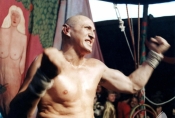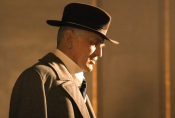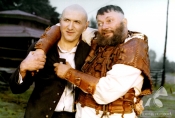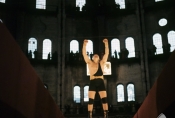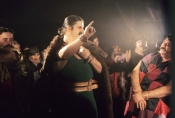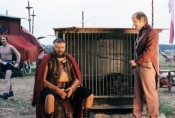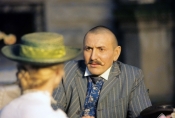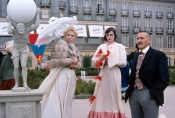ARIA FOR AN ATHLETE [1979]
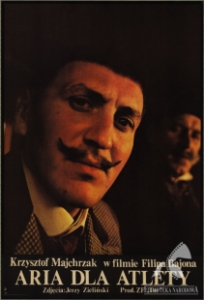
year:
- 1979
release date:
- 15 X 1979
runtime:
- 99 min
directed by:
- Filip Bajon
written by:
- Filip Bajon
director of photography:
- Jerzy Zieliński
cast:
- Krzysztof Majchrzak [Władysław Góralewicz], Pola Raksa [Cecylia], Roman Wilhelmi [Bolcio Rogalski], Bogusz Bilewski [Cyklop Bieńkowski], Wojciech Pszoniak [Siedelmayer], Ryszard Pietruski [Baptisto Messalini], Zdzisław Wardejn [Popow], Andrzej Wasilewicz [Abs], Witold Dederko [an old man in the street], Elżbieta Goetel [Cecylia’s friend], Witold Gruca [Knapp’s choreographer], Wirgiliusz Gryń [Georg Hitzler], Ryszard Dembiński [Knapp], Teodor Gendera [a journalist]
edited by:
- Janina Niedźwiecka
music by:
- Zbigniew Szostak
production design:
- Andrzej Kowalczyk
produced by:
- Zespół Filmowy „Tor”
executive producer:
- Lechosław Szuttenbach
awards:
-
- Polish Feature Film Festival Gdańsk 1979: directorial debut award for Filip Bajon, best cinematography award for Jerzy Zieliński
- Koszalin Film Debut Festival "The Young and the Cinema" 1979: Jantar, the Journalists’ Award
- Cinema Enthusiasts’ Award Samovar 1979
- IFF San Remo (Italy) 1980: best directorial debut award for Filip Bajon
- Zbigniew Cybulski Award 1980 for Krzysztof Majchrzak
- Don Quixote 1980
- IFF San Sebastian (Spain) 1980: honorable mention in the category of new filmmakers
About the film
'Aria for an athlete' is an essay devoted to culture and an epitaph for an extraordinary man, a wrestler with an open, noble soul, something that is becoming an anachronism at the threshold of the twentieth century.
The end of the nineteenth century. Władysław Góralewicz, a young boy from a poor Galician village, is making his first steps in a provincial circus. It is a harsh school of life and the wrestling tricks he is learning are not always clean. His mortal enemies are the Abs brothers, whom he is searching all over Europe, achieving ever-growing fame and gaining wrestling trophies – statues of Atlas carrying the globe on his shoulders. He is a great admirer of opera and the talent of the tenor Messalini, with whom he performs at the Opera on New Year's Eve in 1900...
The character of Góralewicz is based on a real idol of European circus and wrestling arenas, Stanisław Jan Cygankiewicz, world champion in classic wrestling (1906) and catch wrestling (1921, 1925).
In the visually sublime depiction of Europe at the turn of the century presented in Bajon’s pastiche film, a wrestler becomes a sensitive medium at a time of cultural breakthrough: the world ruled by opera gives way to an era of inventions – cinematography, the car, or radio which will broadcast Góralewicz’s subsequent fight.
Jan Słodowski, Leksykon polskich filmów fabularnych, Warszawa 1996
